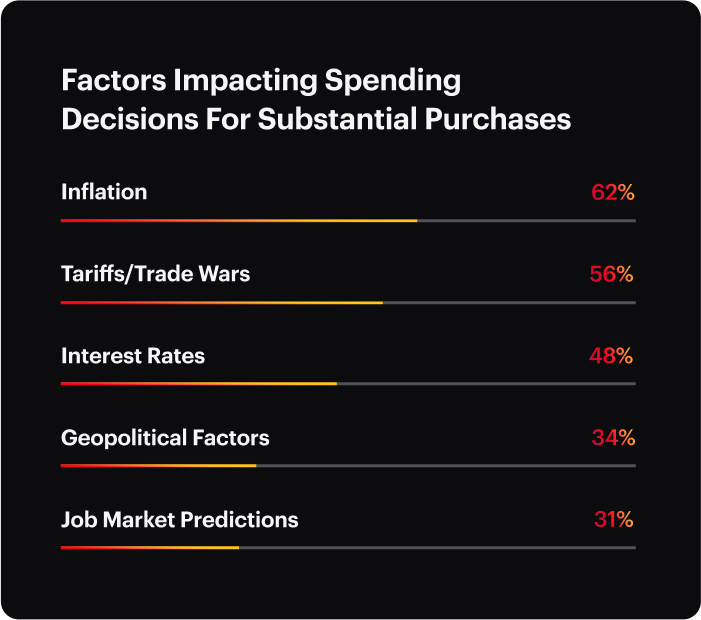The number of mass affluent people who rate their financial wellness as “excellent” fell by more than half in just one year — from 42% in 2024 to 20% in 2025.
The indications of worsening financial health emerged in the Forbes Research 2025 Mass Affluent survey, which polled Americans with between $200,000 and $2 million in investable assets.
The drop was steepest among those aged 51-60, down 43 points year over year (57% to 14%). “Excellent” ratings from those aged under 30 fell from 43% to 25%, a 17-point drop.
Financial wellness was defined as feeling secure, in control and confident about managing money and future goals.
How Are Their Spending Habits Evolving?
The survey provided some insight into what’s influencing the purchasing behaviors of America’s mass affluent.
Inflation’s impact on spending decisions for substantial purchases rose from 59% to 62%; tariffs and trade war concerns — which Forbes Research is tracking for the first time — affect 56%.
Discretionary spending habits are changing; average entertainment spending – including dining out, movies and events – fell by 52% year-on-year, while average luxury goods spending dropped 69%.
Eighty-three percent of respondents now prioritize practicality and value over luxury when purchasing goods or experiences, up from 50% last year, while a willingness to pay more for sustainable products declined from 45% to 40%.
Yet the mass affluent haven’t abandoned experiential spending entirely. Average travel spending actually rose 29%, and 62% of respondents prefer spending on experiences that create memories rather than tangible products and services, up from 54% in 2024.

